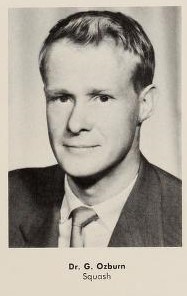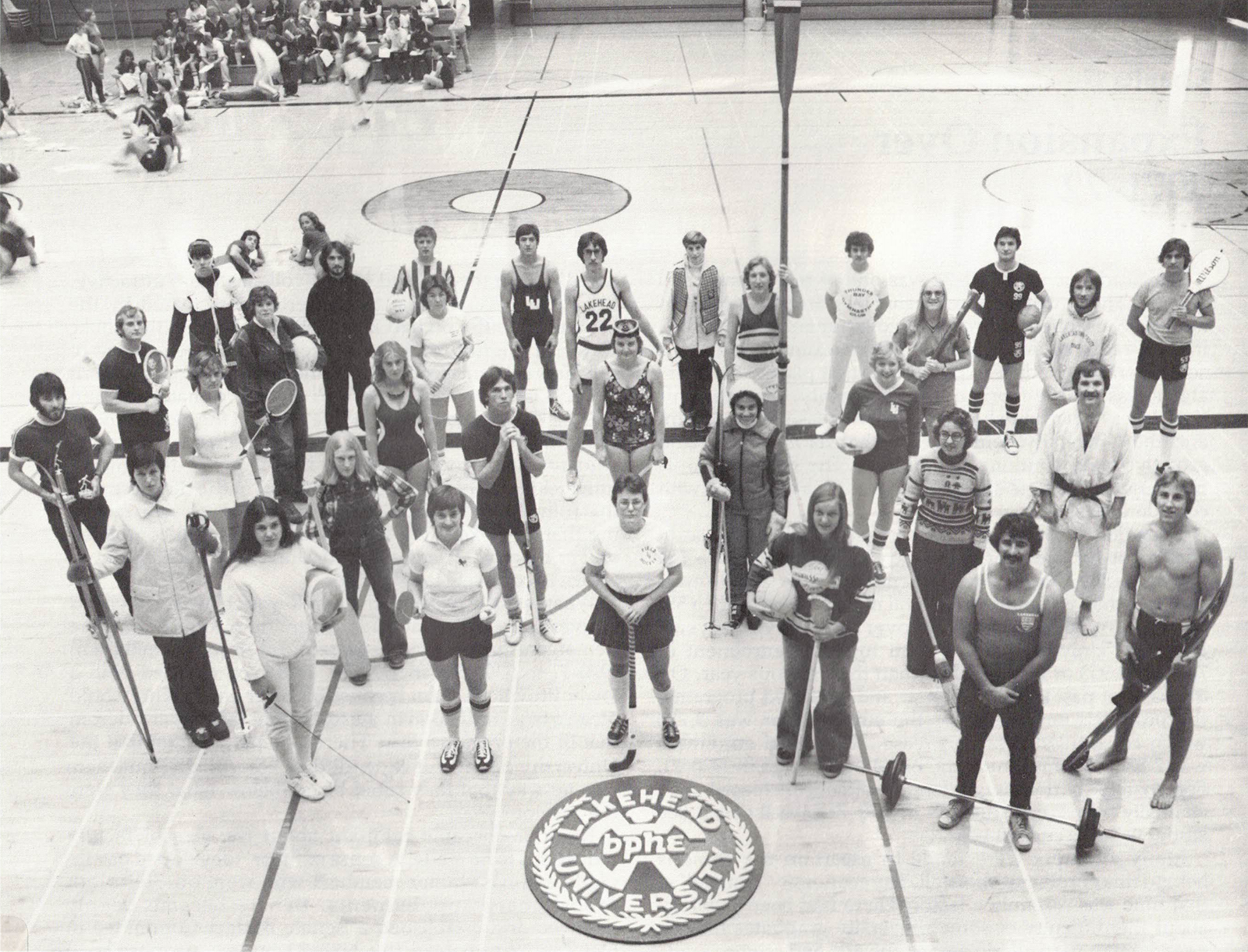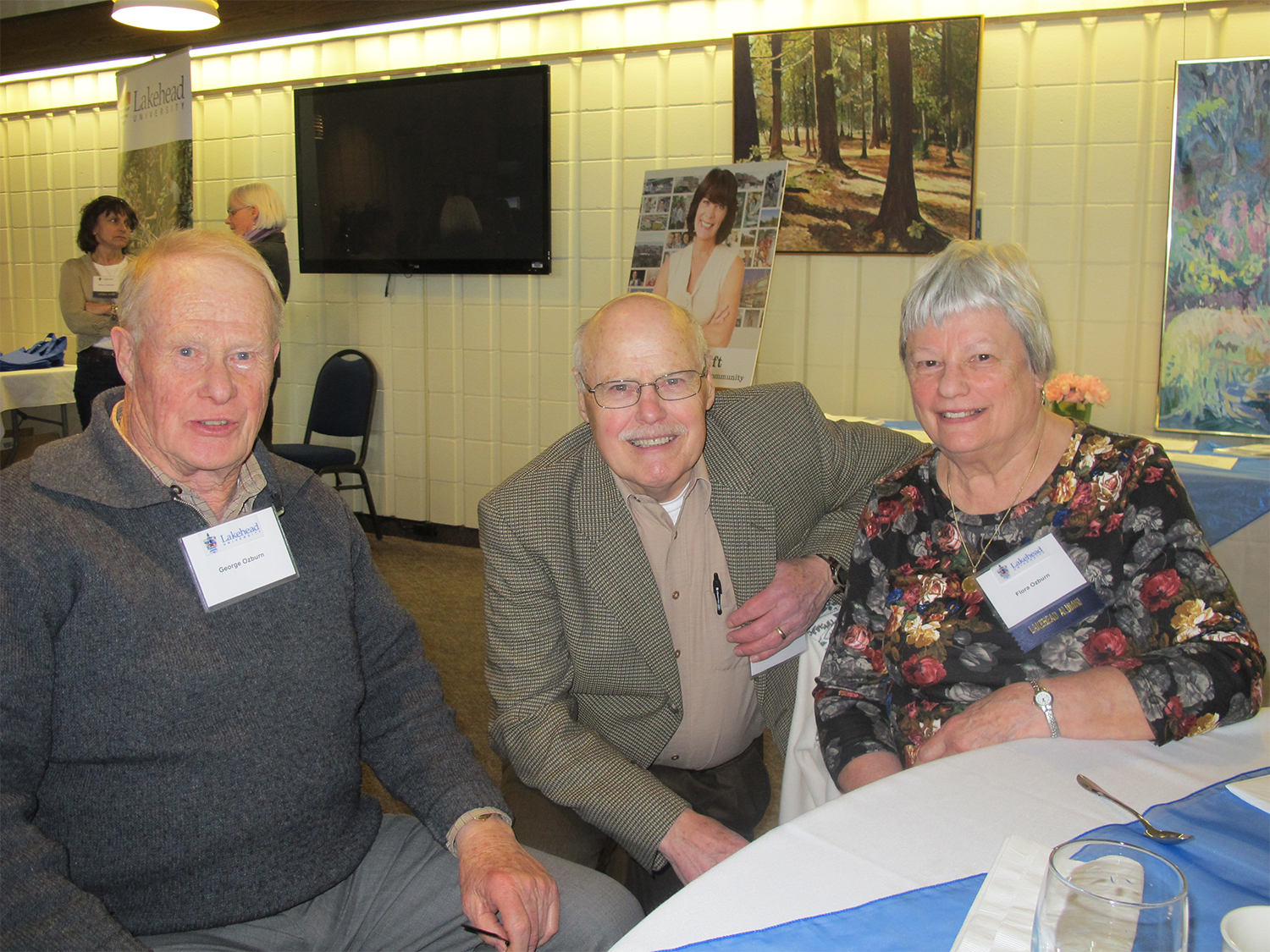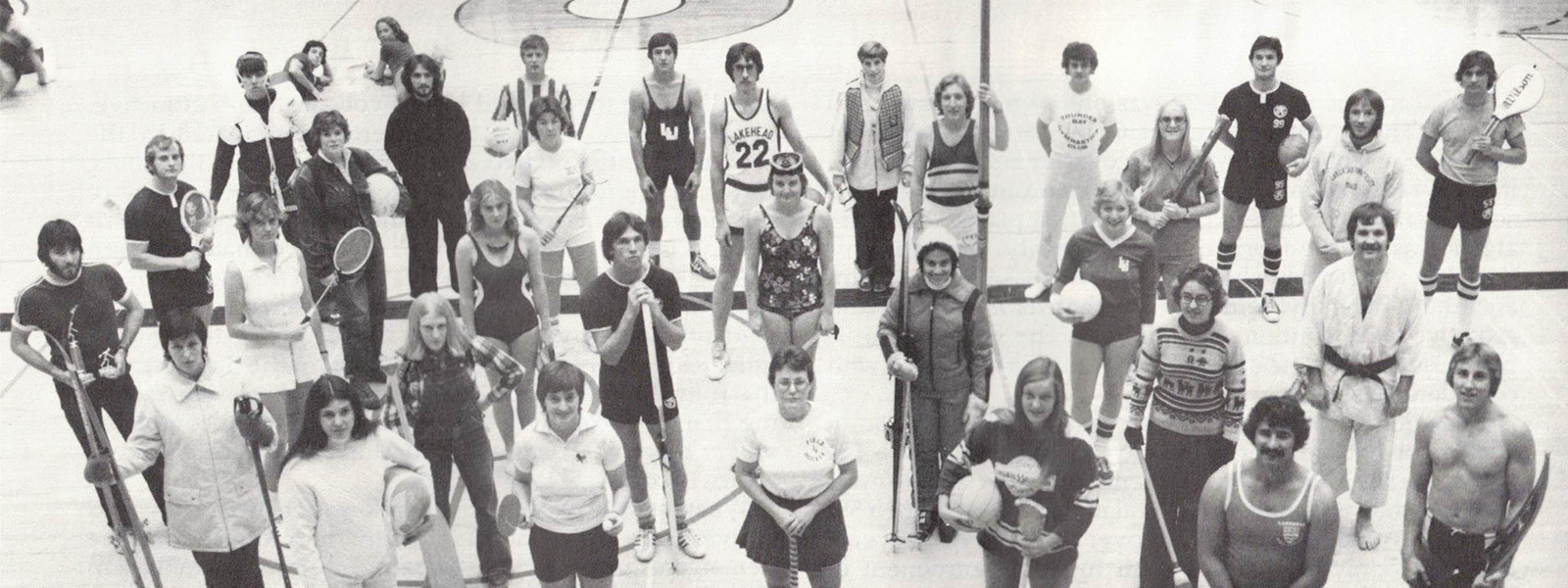“I started at Lakehead in the fall of 1965 – the year Lakehead became a university,” says retired biology professor Dr. George Ozburn. There were only 40 to 50 faculty members and about 500 students.
Dr. Ozburn was an entomologist with degrees from McGill University and Imperial College (London, England) who initially did pest control in West Africa preventing infestations in peanut, maize, and cocoa bean crops.
After marrying, and while teaching at Northern Michigan University, Dr. Ozburn was asked by Dr. Harold Braun, the principal of the Lakehead College of Arts, Science and Technology, if he’d like to teach at the College (which was about to become Lakehead University). Dr. Ozburn quickly accepted.
 Retired Lakehead biology professor Dr. George Ozburn is a trained entomologist who says his favourite insect is the dragonfly. “I once found a fossilized dragonfly wing on a canoe trip to James Bay with my father – the wing was just over a foot in length.”
Retired Lakehead biology professor Dr. George Ozburn is a trained entomologist who says his favourite insect is the dragonfly. “I once found a fossilized dragonfly wing on a canoe trip to James Bay with my father – the wing was just over a foot in length.”
“I had large first-year biology classes in the Upper Lecture Theatre of the Braun Building,” he remembers. “Other classes were taught in a number of smaller rooms for both lectures and labs.”
Later, as the University expanded the science and engineering building, Dr. Ozburn developed an aquatic toxicology research program. This involved work for the federal and provincial governments developing standards for allowable discharge of toxic substances into waterways. The lab still exists and tests effluents from regional paper mills and mines.
As a fledgling university, faculty members were expected to help attract students and boost enrolment numbers, especially from Northwestern Ontario.
“The University used to send professors on road trips to recruit high school students from places like Geraldton, Rainy River, and Manitouwadge,” Dr. Ozburn says. “These were always fun trips usually in bad weather during exam week in December and April.”
But it wasn’t all hard work.
“In the early days, the faculty hosted a lot of parties,” Dr. Ozburn says.
Some of the profs were World War II vets, and with a little lubrication, you’d sometimes get great stories. Like when Tom Miller – a history professor who served in the air force – told us about his escape from a prisoner-of-war camp.

Dr. Ozburn was a big supporter of Lakehead’s Physical and Health Education department, volunteering his coaching skills and his time. Pictured above are students in the Fieldhouse representing the different sporting activities offered by the program in the 1970s. “One year, an oval speed skating rink was constructed on a playing field beside the Fieldhouse for the physical education students,” he says. “The department even brought a Zamboni up from town a couple of times to ice it.”
Lakehead also gave Dr. Ozburn an outlet for his love of sports.
“In the first few years there was a proper hockey rink with lights and boards in front of where the Agora is today. There were frequent co-ed matches between faculty and students with the latter usually winning.”
He also remembers annual winter carnivals featuring some remarkable ice sculptures and the crowning of a carnival queen and king.
The only other on-campus sports were squash games held in courts in the Braun Building and table tennis matches held in two of its hallways.
In 1967, Dr. Ozburn coached the squash team that won the first intercollegiate championship for Lakehead. He also assisted the Physical and Health Education department – which later became Kinesiology – with mandatory sporting activities, including cross country skiing and canoeing.
“The dean of the day inveigled me to help with the canoe trip, and for many years, I was one of the leaders on an annual expedition to the Boundary Waters that separate Minnesota and Ontario,” he says.
When the students needed another canoe for their 1973 trip, Dr. Ozburn gave them one, and since then has been a regular and generous donor to the University.
“I really enjoyed my time at Lakehead,” Dr. Ozburn adds. “I don’t think I could have had a better life anywhere else.”

Dr. George Ozburn (left), former Lakehead Interim President Dr. John Whitfield (centre), and Dr. Ozburn’s wife Flora (right) catch up at a Lakehead donor luncheon. Through Dr. Ozburn’s generosity, students have been able to pursue postsecondary education. He established the George Ozburn Graduate Bursary 21 years ago for Master of Public Health in Nursing students entering their first year and the George Ozburn and Family Graduate Scholarship, which is open to kinesiology students, 15 years ago.


